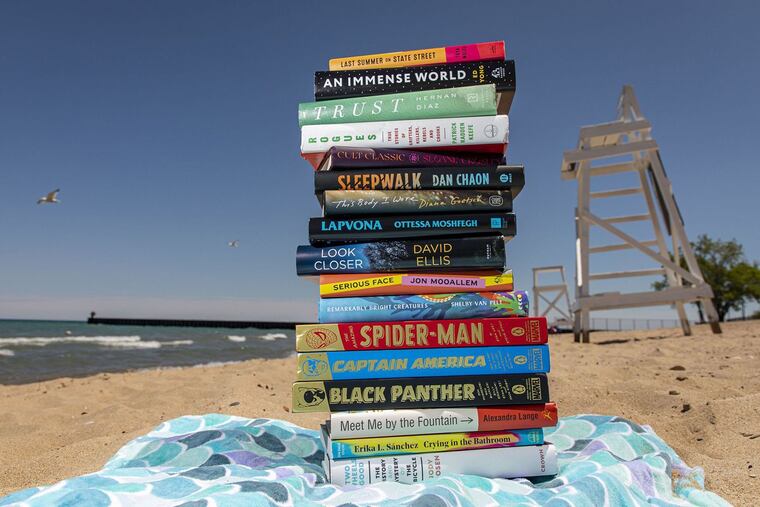What doctors can learn from the right summer beach read
It might seem odd for doctors to spend their vacation reading about disease. But literature with characters coping with illness is an opportunity to learn from disease and patients in new ways.

When my wife and I were perusing the stack of books we chose for vacation reading this year, we were each struck by the other’s selection — mostly stories of serious illness.
Surprise came not from the beach-atypical subject matter — we both gravitate toward illness narratives — but that none of our chosen titles was a duplicate. We had unknowingly arranged a perfect vacation “book club” for ourselves.
I realize it may seem odd for doctors to spend their vacation reading about disease. Shouldn’t we be trying to take a break from all that? But rather than blurring the line between work and leisure, we see literature with characters coping with illness as an opportunity to learn from disease and patients in ways we can’t when we’re on the job. These books created an intimate space where we experienced uninterrupted stories of illness, unlimited by the time constraints and administrative burden of modern office practice.
I first realized literature’s power years ago, reading Tolstoy’s 1886 novella, “The Death of Ivan Ilyich.” As he senses death approaching from a mysterious, painful abdominal ailment, Ilyich examines his life and regrets many shallow decisions along the road to his idealized official and social success. I was shaken by Ilyich’s deep suffering and remorse, and enlightened by Tolstoy’s description of the power of offering presence to someone nearing the end of life.
This summer, my wife and I read “Between Two Kingdoms” by Suleika Jaouad. It’s a heart-wrenching story of her ongoing battle with leukemia, which struck with cruelty in her 20s just as she was trying to navigate a great love and promising career.
Jaouad describes her many months of symptoms before eventually receiving her ominous diagnosis with remarkable perspective and humility. Rather than voice only anger or place blame, she shows the many layers of complexity that lead to diagnostic delay. Jaouad’s story gave me a new perspective on issues I’ve experienced as a doctor — but never as a patient.
One lesson that stuck with me was how significantly Jaouad was affected by the care team’s failure to address the issue of future childbearing during discussions of her cancer treatment. Chemotherapy can cause infertility, so harvesting and freezing eggs or embryos is a deeply personal and important consideration for young women.
As doctors, we naturally focus on fixing the problem — cancer, in this case — but Jaouad’s story reminded me that patients think of cancer in the context of their entire lives, and we will be better doctors if we think that way, too. Her story has reminded me to “zoom out” and look at all medical problems in the context of what is most meaningful in my patients’ lives.
Jaouad’s story felt like a cautionary reminder of how easy it is to get caught up in routines and obligations; we are always at risk of letting important opportunities for meaningful emotional connection slip by. People facing serious illness or imminent death put life’s priorities in vivid perspective, although often with far less time and energy to act on these precious insights. Reading Jaouad’s memoir felt like a call to action to live a less hurried life, hopefully with fewer regrets.
We passed our vacation books back and forth to each other and had many rich conversations, often fueled by wonderful food, wine, and the backdrop of Martha’s Vineyard’s gentle ocean waves and soft forest murmurings. Of course, we slipped in a lighter novel and some short fiction, too. We returned home relaxed and, I hope, with eyes opened wider, poised to notice more of the things that matter most.
Jeffrey Millstein is an internist and regional medical director for Penn Primary Care.